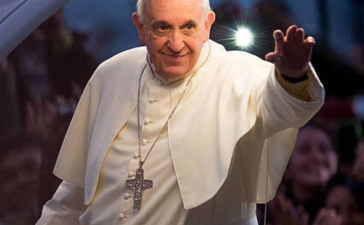‘What are you going to do about the Sun?” It was the first question Neil Kinnock asked, when a bunch of eager young political advisers setting up a now long-forgotten campaign for Britain to join the single currency begged his advice. By then an EU commissioner, Kinnock had never forgotten the paper’s devastating 1992 front page asking the last person left in Britain to turn out the lights if Labour won. But for decades now, his question has haunted the liberal left.
The Murdoch press has earned a fearsome reputation among progressives as a kind of giant toad squatting in the road, blocking the way to everything from higher taxes to gay rights and, above all, closer relations with Europe. Few did more to pave the way for Brexit than the immigrant-bashing, Brussels-baiting Sun, whose once cheeky Euroscepticism had descended by 2015 to the nadir of a Katie Hopkins column describing migrants drowning at sea as cockroaches. “Show me pictures of coffins, show me bodies floating in the water … I still don’t care,” she wrote. Across the Atlantic, Rupert Murdoch’s Fox News channel offered a similarly shrill platform for the angry, increasingly paranoid voices who would propel Donald Trump to power. Though he eventually came to regret enabling Trump, when the 92-year-old Murdoch finally relinquished the reins of his empire to his son Lachlan last week, it was with one last defiant populist attack on the “elites” supposedly setting the political narrative.
There’s not enough salt in the world to take with that sentence, coming from a billionaire treated by world leaders like an angry god to be appeased. Murdoch told the Leveson inquiry into press misconduct that he’d “never asked a prime minister for anything”, but if so that was perhaps because so many prime ministers scrambled to find out what he wanted without him having to ask. (Fear of Murdoch helped persuade Tony Blair not to call that promised referendum on joining the euro, one of his former spin doctors told me; the Sun’s then political editor, Trevor Kavanagh, was known, only half-jokingly, in Whitehall as “the real Europe minister”.)
But if the right is too easily sold on silly populist conspiracy theories about a woke liberal elite controlling everything, the left has its own version. The comforting story it tells itself after every lost election is that without Murdoch or the Mail it could have won, as if Britain would be a liberal utopia if only the tabloids hadn’t somehow brainwashed everyone. To see Murdoch as a wizard of such supernatural gifts is to misunderstand the origins of his power: put simply, people.
Wondering what would happen in British politics if Murdoch’s iron grip lessened? Just look around: it’s already happened. Power has been quietly ebbing for years away from his titles, alongside the rest of the mainstream media, towards Facebook and X (formerly Twitter) and YouTube, platforms founded primarily by liberal tech bros and now swamped by white supremacists, Russian propogandists, haters and cranks. It’s new, not old, media increasingly driving the political volatility that has so destabilised western democracies, by taking what Murdoch did – giving the punters what they seem to want – to new extremes. His genius lay in a gut feeling for what angered or moved or titillated millions, long before algorithms made that easy to work out. He grasped the desire to be entertained, and to feel as if you mattered. (Both the serious investigations into matters of high public importance that his Sunday Times pursued and the tub-thumping at the Sun made their respective readers, in different ways, feel powerful and influential by association.) He confirmed his audience’s prejudices but hardly invented them, growing stronger the more politicians avoided confronting him, and by association, them.
Ironically, one of his executives once told me, Murdoch was privately scathing about politicians who kowtowed too much to him: he admired guts and conviction. He was also a businessman first and an ideologue only second, lobbying harder on commercial issues – media regulation, or funding of his rival, the BBC – than on purely political ends, and responding surprisingly pragmatically to shifting times. His Sun backed Blair over John Major in 1997 at least partly because it could see its readers had already made the leap, so why lose face by trying and publicly failing to convince them? Better to extract whatever concessions it could from Labour, in return for Murdoch’s blessing. Keir Starmer’s invitation to the annual Murdoch summer party this year suggests a similar willingness to at least run the rule over the Labour leader, despite lingering anger over his role in News UK’s public humiliation over phone hacking. (As director of public prosecutions, Starmer brought charges that ended in the jailing of the former News of the World editor Andy Coulson, by then David Cameron’s director of communications.)
Since that scandal, Murdoch’s involvement in British public life has palpably receded. For all the talk of launching a British Fox News, here it’s GB News, owned by the hedge funder Sir Paul Marshall, that has become the shrill, shameless voice of British populism and the most pressing challenge for regulators.
That’s no excuse for complacency over the legacy of a man once described as a cancer on democracy. But it is a reminder, perhaps, of the risks of personifying evil in one man. The problem wasn’t Murdoch so much as the human instincts he tapped into, and politicians’ fear of challenging him. Whatever the next Labour leader chooses to do about the Sun, what matters is not being blinded by it.
Gaby Hinsliff is a Guardian columnist
-
Do you have an opinion on the issues raised in this article? If you would like to submit a response of up to 300 words by email to be considered for publication in our letters section, please click here.









